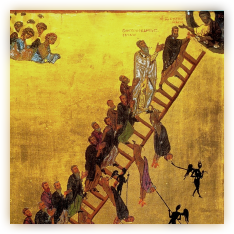
What books leave you feeling misanthropic? And what books lift your spirit, restoring a sense of faith in humanity? In this household we are currently reading Crime and Punishment and Mockingjay, which, in some unremembered way, triggered this discussion. Reviewing the many books we have read in common, we came up with a short list of those at the pinnacle for us. We ruled out anything too obvious, e.g. no dystopian novels, and no… well, I guess we don’t even know about novels that are deliberately or obviously uplifting. I presume they exist, but I couldn’t tell you the name of one.
Degradation
Not surprisingly, this first category was easier than the second. They left us better understanding the dark side of the human spirit, better understanding other cultures, and better understanding the zeitgeist of the particular setting. They also left us with a bitter feeling toward our kind. The use of language was beautiful in all three cases, and indeed the novels are all technically brilliant; yet, it is unlikely that we will return to re-read these in the next decade or more.
- The obvious first place goes to… The Unbearable Lightness of Being, by Milan Kundera. It has been too long since I read this. Our copy went to Half Price to prevent a re-reading. Soviet-era repression and stagnation are not an excuse for being horrible people! Granted, they are facilitators for expression of our worst qualities.
- There is an irony in the second choice, The Idiot, by Fyodor Dostoyevsky. I wrote a brief review in 2004, in which the protagonist’s simplicity and understanding of love is mentioned. These are in contrast to the gossiping, spiteful, ruinous human beings he finds all around him. We find that it is impossible to be good and be in society.
- Undoubtedly, I will return to Salman Rushdie’s The Moor’s Last Sigh at some future date. Read more recently than the other two, there was so much to it that I have trouble remembering why I left feeling so awful about humanity. The feeling, rather than the facts, remains.
Honorable (or otherwise) mentions: Doctor Zhivago by Boris Pasternak, The Mists of Avalon by Marion Zimmer-Bradley.
Upliftment
While the degradation tended to be realist fiction (or magical-realist), these are (with one exception) decidely not. Let us not deconstruct that fact here and now.
- J.K. Rowling’s universe in the Harry Potter novels is one in which the students do not care about ethnicity, in which they stand up for each other with courage overcoming pettiness. It is a place where family still matters, and most importantly, where love rules on the battlefield.
- the protagonist in Anna Karenina, by Leo Tolstoy, served for us as a foil rather than a hero. For us, the heroes were Kitty and Levin, whose relationship is so very pure, without becoming sappy. Their simple story is one of the greatest love stories ever put to paper.
| The Ne(i | a)ls (“kneels”) are tied: |
- the beauty of family carries Neil Gaiman’s Anansi Boys into this list. Part of the family is not exactly human — and yet in their deification they are extraordinarily, and endearingly, human.
- The world of Anathem by Neal Stephenson is populated by aliens with the same human spirit. That they are technically aliens allows for subtle shifts in history and culture, building a society that values knowledge so much that it sets scholars apart in quasi-religious orders. In the real world, scholars shouldn’t separate themselves. But the extreme allows us to delve into the (presumable) uniqueness of human curiosity and powers of investigation
Honorable mention: Speaker for the Dead by Orson Scott Card (disqualified because only one of us has read it). Certain themes in the works of Charles DeLint.
Coda: despite the darkness, I found the Hunger Games trilogy more uplifting than expected. Perhaps more on that later.
The photo is of 12th century icon, called The Ladder of Divine Ascent; license public domain; source Wikimedia Commons.
Posted with : Social Discourse, Book reviews and commentaries